The Danjo Garan, the Heart of Kukai’s Koyasan
Koyasan, or Mt. Koya, is one of the most popular destinations in the Kansai region. Just an hour and thirty minutes from Osaka is the head temple of Shingon Buddhism. Located some 800m above the ground, the temple complex of Koyasan stretches 6 km from the Daimon Gate to Okunoin, with Danj Garan the main of the temple.
Koyasan: The Danjo Garan
About the Danjo Garan
The history of Koyasan dates back to 816 when Kukai received land from Emperor Saga to build a place for people to study and practice Esoteric Buddhism, or Shingon Buddhism. The first building Kukai created was the Danjo Garan, which he intended to be the central place for the practice of Shingon Buddhism.
The word danjo refers to an elevated place, and a garan is a place for people to practice Buddhism. In the Danjo Garan, the world of Shingon Buddhism is painted vividly through elaborate mandalas that help convey the teachings of Kukai to all who visit.
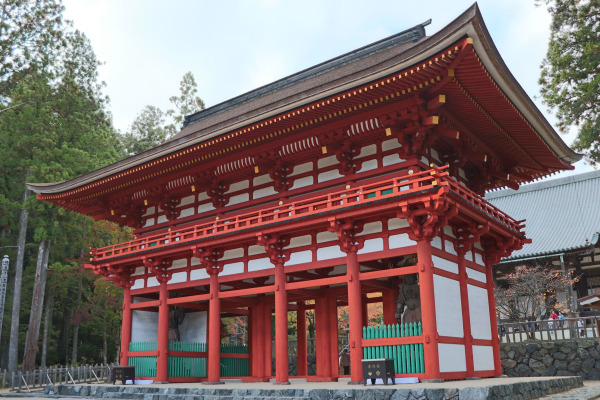
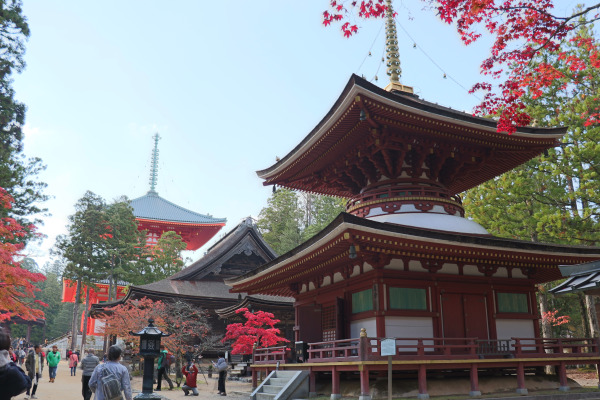
According to legend, when Kukai decided to return to Japan from his studies in China, he threw his sankosho* in the air and it flew from China to Japan.
Much later, as Kukai was walking through Mt. Koya, he encountered a hunter with two dogs, who claimed to know where the sankosho landed. The hunter and his dogs lead Kukai far up the mountain where he found his sankosho hanging from the branch of a pine tree. Explore the path Kukai took to Koyasan!
The hunter and his dogs promptly vanished. Only later did Kukai learn that the hunter was, in fact, Koya Myojin, a local god. After this encounter, Kukai asked the emperor to grant him this land so he could build what is today Koyasan.
*sankosho: a tool for praying in Shingon Buddhism
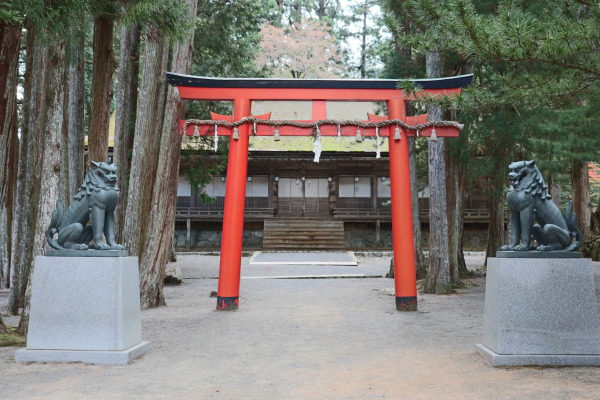
The kondo is the main building in Danjo Garan and was built even before Kopon Daito. Inside the kondo is a huge statue of Yakushi Nyorai, but unfortunately the original burnt down in the 1843 fire. The current kondo was rebuilt.
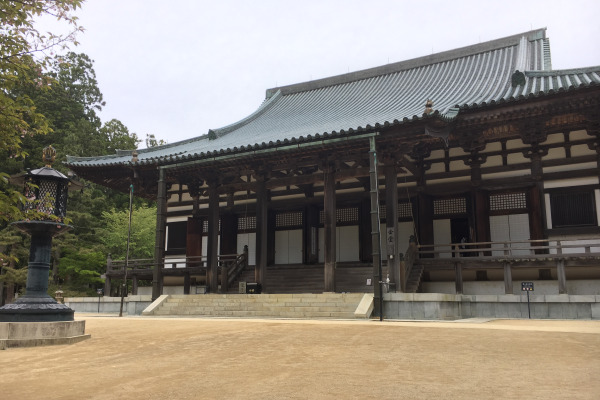
Konpon Daito and Saito
Though technically kondo is the heart of Koyasan, the bright red pagoda, called Konpon Daito, is the one that attracts most people’s attention.
There are two realms in Shingon Buddhism: Womb Realm (taizo-kai) and Diamond Realm (kongo-kai). Each realm has specific Buddhas and how all those gods are related is depicted in the mandala.
In Koyasan, those two mandalas, namely the Mandala of Womb Realm and the Mandala of Diamond Realm, are visually represented in Konpon Daito and Saito respectively.
Inside the pagoda, you will see a huge statue of the main deity of Shingo Buddhism, Dainichi Nyorai, along with four other statues in each corner. Each pillar inside the kondo has a painting of each of the primary Buddhas in Shinogon Buddhism.
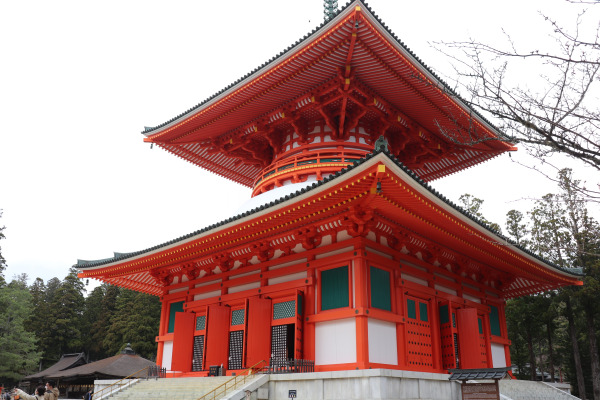
The saito is a pagoda representing the mandala of the Diamond Womb. Since it is located a bit far away from the kondo, not many people visit it.
Inside the pagoda is another statue of Dainichi Nyorai and several other important deities. While you cannot go into the pagoda, you can peek inside.
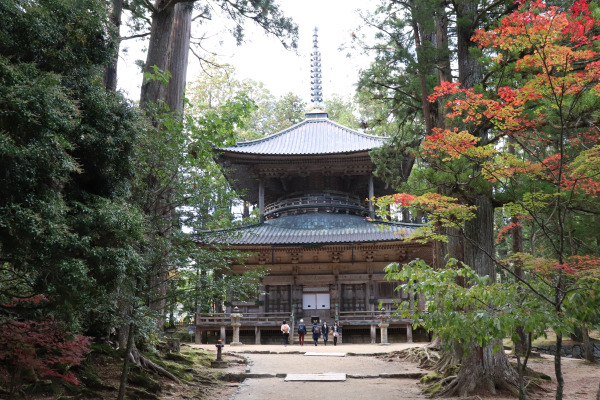
Fudodo
On the way to the Danjo Garan to Gongobu-ji, is a precious building that you should definitely check out; the Fudodo.
The Fudodo is one of the two Japanese National Treasure buildings in Koyasan. What is special about this one is that it is a pure wayo-style building built in the Heian Period and was refashioned as a temple during the Kamakura Period; in short, it was built roughly 900 years ago.
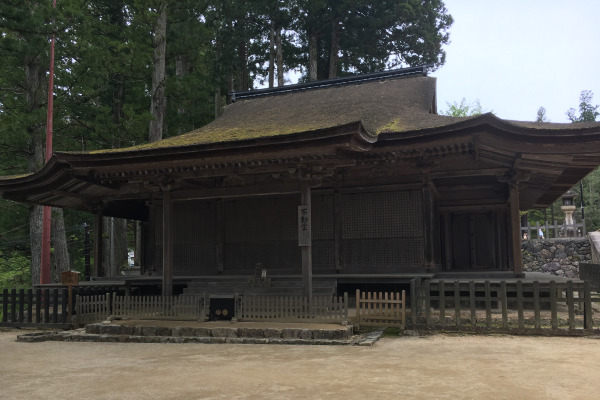
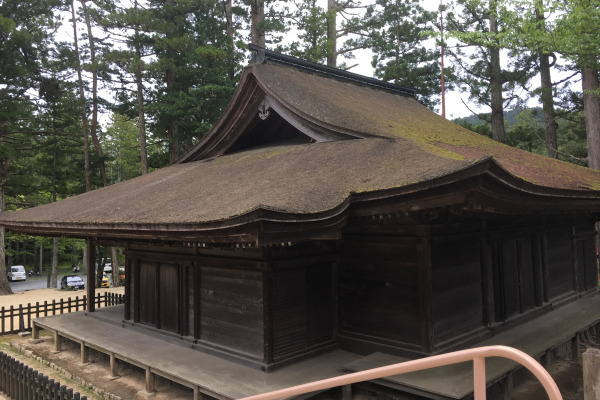
But why is the Fudodo here? Well, it wasn’t, not originally at least. At first, it was near Daimon Gate but got after the big fire. The Koyasan Museum currently exhibits several statues that are Japanese National Treasures dating back to the Heian Period.
Information: Danjo Garan
| Address |
|
| Website |
|
| Getting To |
Take the Nankai Koya Line from Nakai Namba Station and get off at the last station, Gokurakubashi. There is a limited express train, Koya. Once you get to Gokurakubashi you will need to take a cable car up the mountain and then a 20-minute bus ride to Danjo Garan.
|
| Hours |
8:00-16:00
|
| Admission |
|
| Note |
When you visit Koyasan consider buying a Koyasan World Heritage Ticket. It offers you great discounts on train fare, a free bus two-day bus pass, and discounts on some of the facilities in Koyasan. We strongly recommend getting this ticket. You can buy this at Namba Station.
|
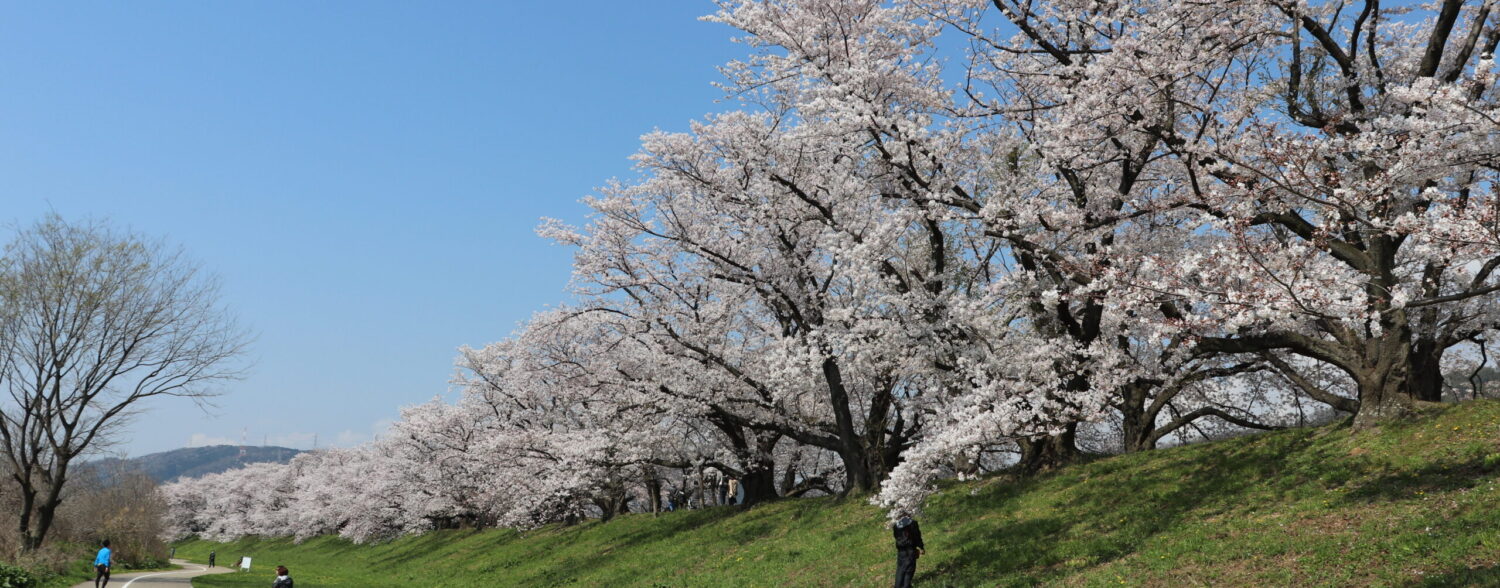
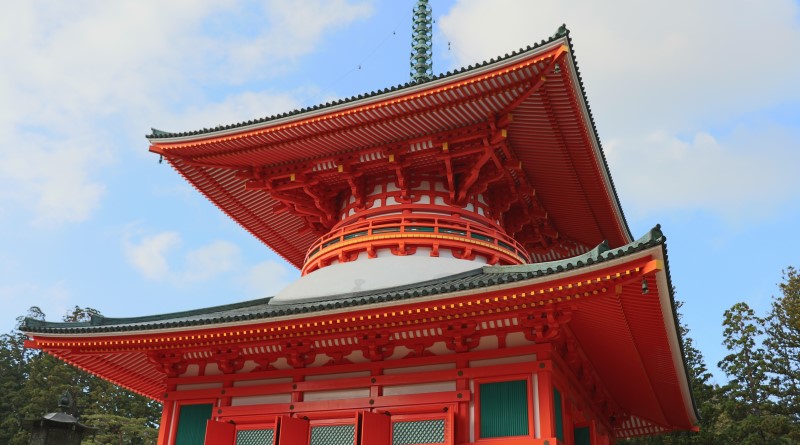
Leave a Reply